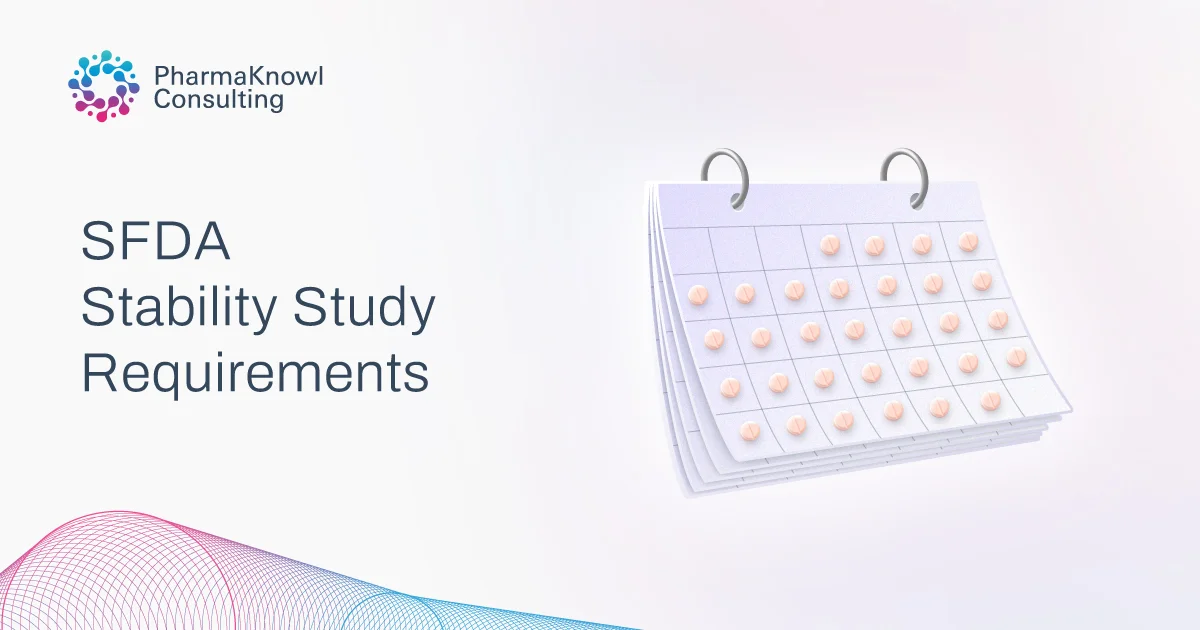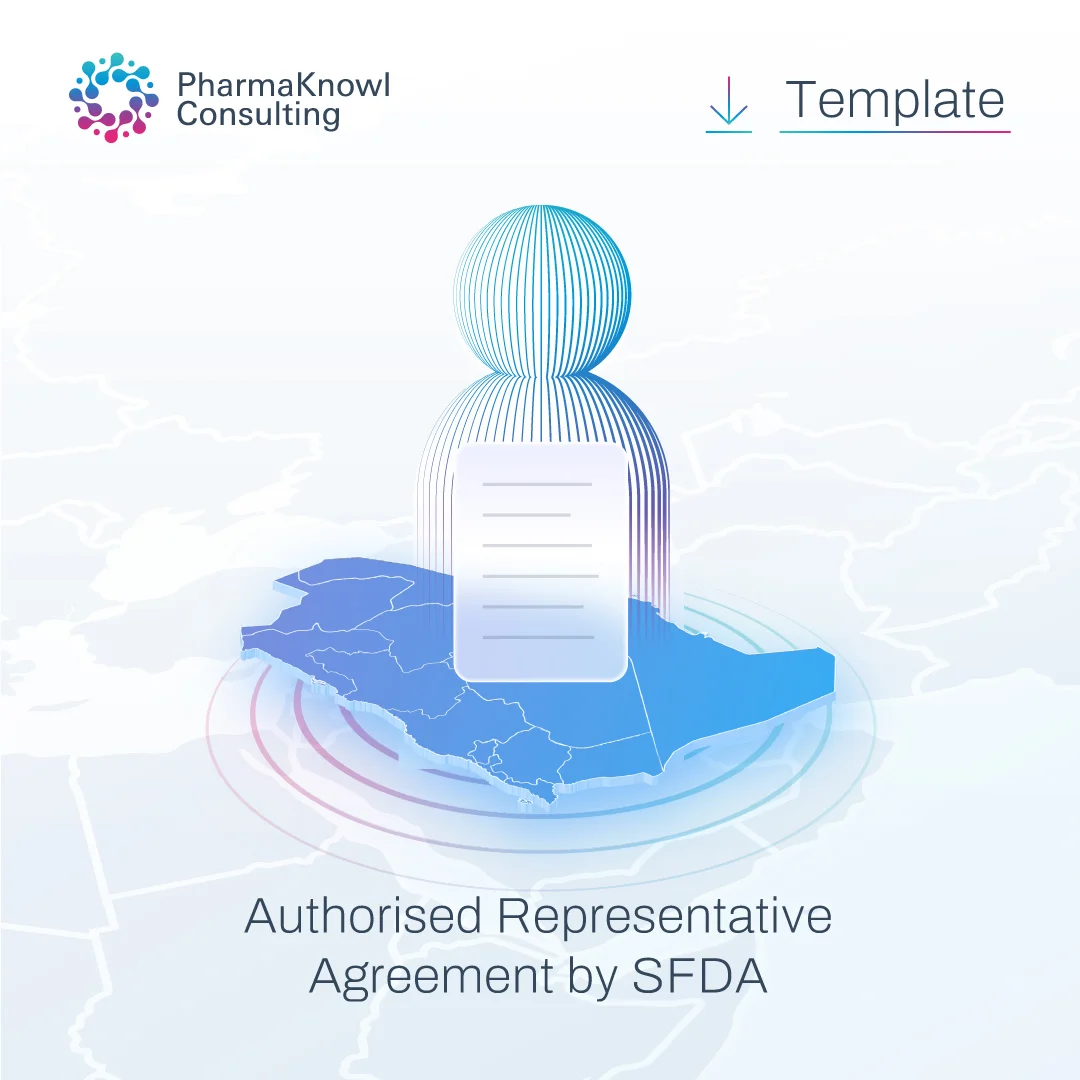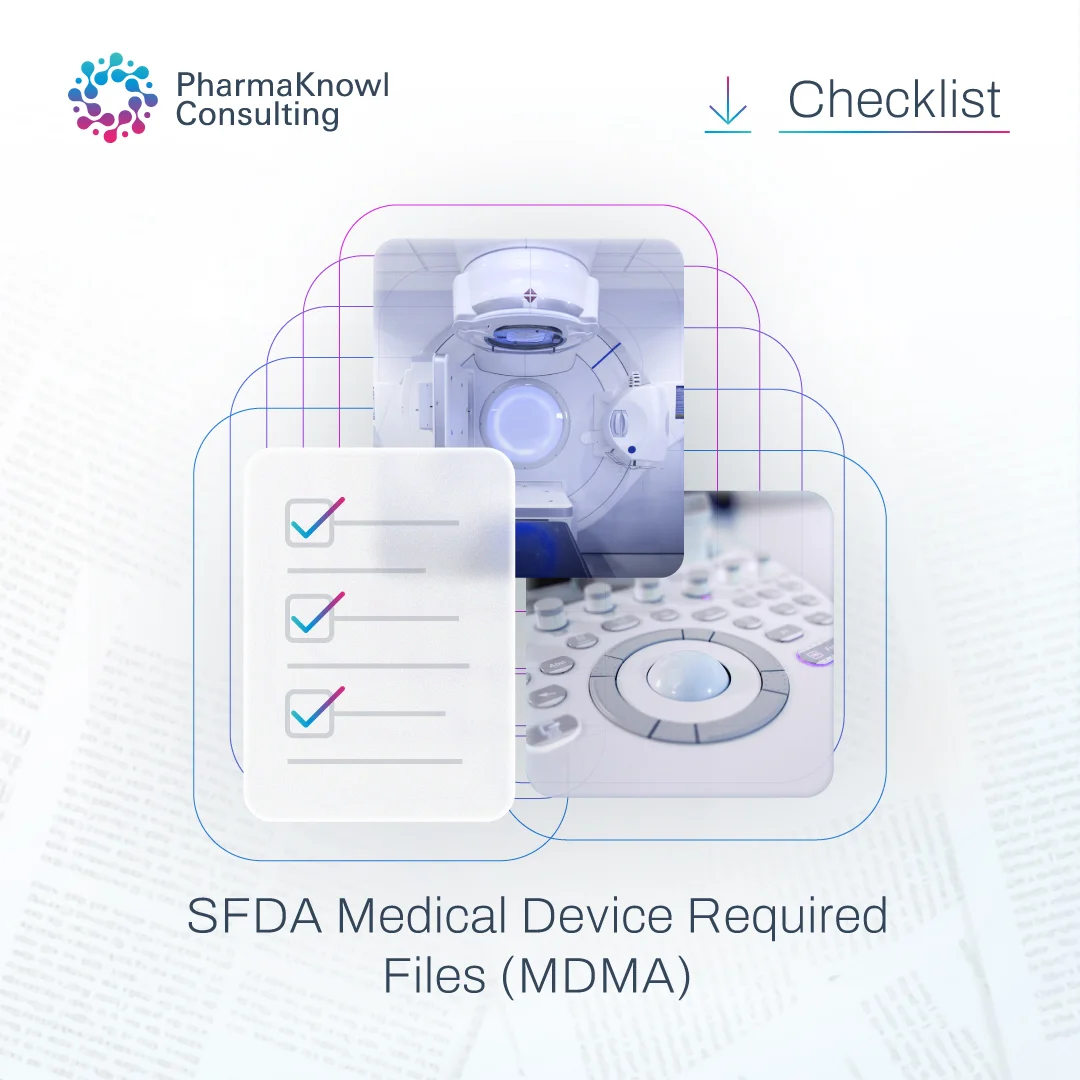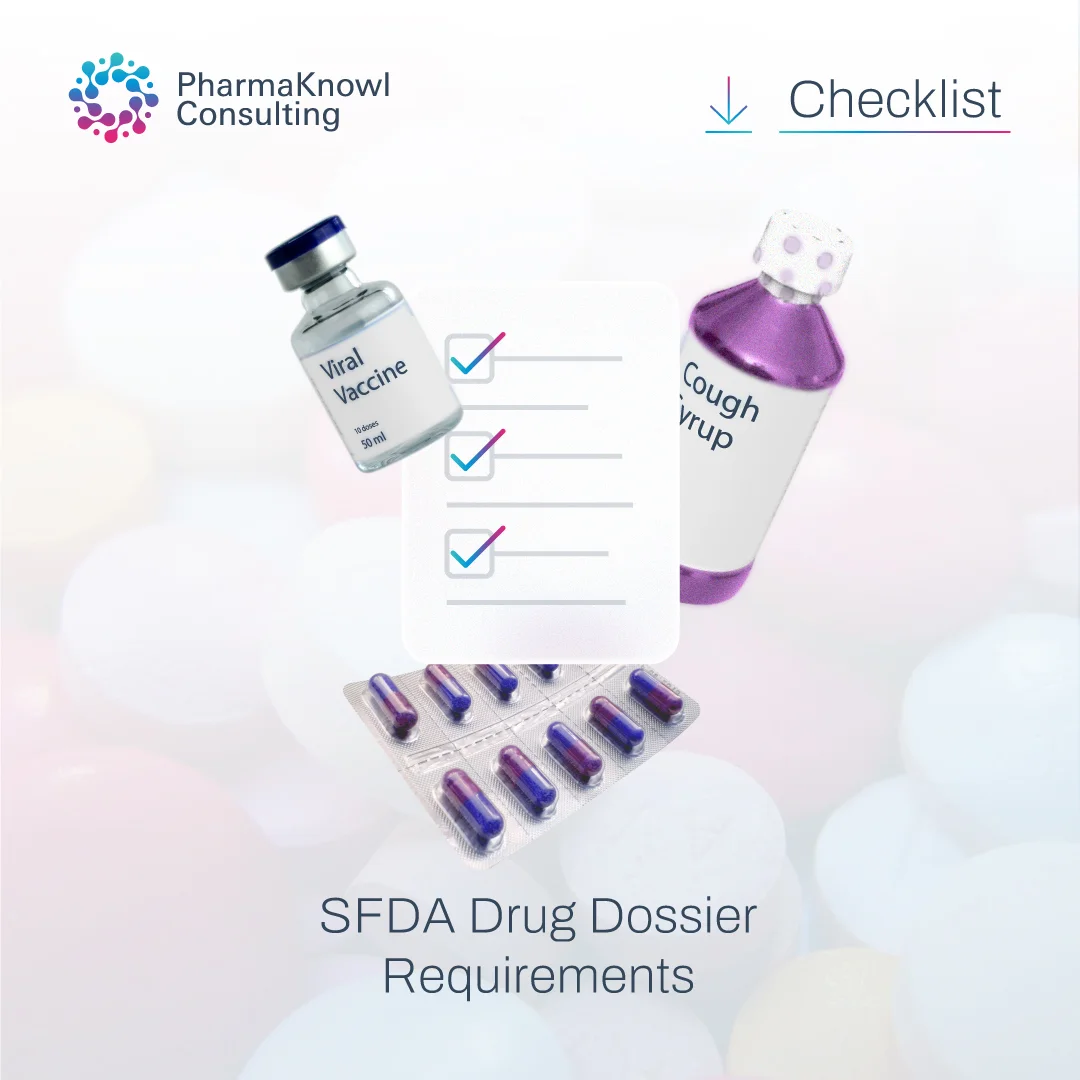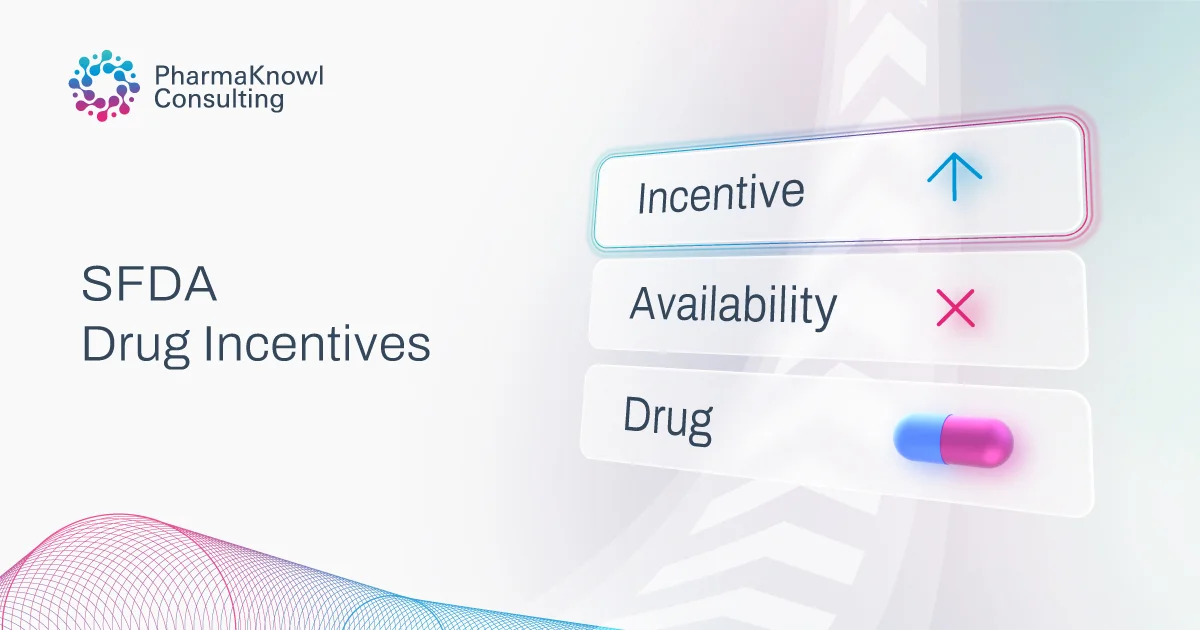Stability studies are one of the critical quality parameters of pharmaceutical products. Therefore, it sets the drug shelf life, determines proper storage conditions, and contributes to the labelling instructions for end-users. Stability studies for the Saudi market (SFDA-GCC) are to be conducted in accordance with the International Conference on Harmonisation (ICH) Q1A(R2) and the World Health Organization (WHO) guidelines. It is one of the key compliance elements for drug file approval in the SFDA and the GCC countries.
This article will detail the minimum requirements for the SFDA drug registration dossier, under the three eCTD sections:
- 3.2.P.8.1 Stability Summary and Conclusion (Overall Summary)
- 3.2.P.8.2 Post-Approval Stability Protocol and Stability Commitment
- 3.2.P.8.3 Stability Data
Table of contents
Stability Summary And Conclusion
The summary should clearly outline the number of batches manufactured and placed into the stability study, and the time point at which the drug product analysis is done under long-term and accelerated conditions.
Stability batches containing information related to (Storage Conditions, Testing Frequency, and Type of tests) should be outlined, as indicated in the table below;

A discussion of the stability results for the batches studied at the time of submission should be included, as there were no significant changes in the overall concentration of the batches.
The conclusion should be clear: no significant changes in any of the product parameters, either during the long-term or during the accelerated stability testing, and accordingly, the shelf life and storage conditions are proposed.
Post Approval Stability Protocol And Stability Commitment
A stability testing protocol is required to confirm the proposed shelf life. It should contain information on the stability batches studied, test details, storage conditions, and sampling plans. SFDA might require stability commitments in cases such as:
- If the study does not cover the proposed shelf life.
- Post-approval long-term stability studies.
- Ongoing stability studies.
Stability Data
Selection Of Batches
Three primary stability study batches are required. Two of the three batches should be at least pilot-scale batches (pilot-scale batch size is 10% of the proposed production size). The third one can be a lab-scale (lab-scale batch can be smaller than 10% of proposed production, but NLT 25% of the pilot-scale)
Testing Frequency
The testing frequency at the long-term storage condition should be every three months over the first year, every six months over the second year, and annually throughout the proposed shelf-life (e.g., 0, 3, 6, 9, 12, 18, 24, 36 months).
At the accelerated storage condition, a minimum of three time points, including the initial and final time points (e.g., 0, 3, and 6 months), from a six-month study are recommended.
Stability Zone
For Saudi Arabia, stability is required in Zone IVa for long-term stability testing. Alternative storage conditions can be used if justified.
Long Term Testing Conditions:
| Climatic Zone | Temperature | Humidity | Minimum Duration required at submission |
| Zone I | 21ºC ± 2ºC | 45% rH ± 5% rH | 12 Months |
| Zone II | 25ºC ± 2ºC | 60% rH ± 5% rH | 12 Months |
| Zone III | 30ºC ± 2ºC | 35% rH ± 5% rH | 12 Months |
| Zone IVa* | 30ºC ± 2ºC | 65% rH ± 5% rH | 12 Months |
| Zone IVb | 30ºC ± 2ºC | 75% rH ± 5% rH | 12 Months |
| Refrigerated | 5ºC ± 3ºC | No Humidity | 12 Months |
| Frozen | -15ºC ± 5ºC | No Humidity | 12 Months |
* Stability zone for Saudi Arabia
Accelerated Testing Conditions:
| Climatic Zone | Temperature | Humidity | Minimum Duration |
| Accelerated Ambient | 40ºC ± 2ºC | 75% rH ± 5% rH | 6 Months |
| Accelerated Refrigerated | 25ºC ± 2ºC | 60% rH ± 5% rH | 6 Months |
| Accelerated Frozen | 5ºC ± 3ºC | No Humidity | 6 Months |
Stability data should include the type of batches used for the study (e.g., production, pilot, or lab), storage condition, stability entering date, and product manufacturing date. The data should be tested for stability parameters, including physical, chemical, and microbial parameters. In general, appearance, assay, and impurities should be evaluated for all dosage forms, as well as preservative and antioxidant content, and other parameters as specified for each dosage form.
In Use Stability Data
In-use stability ensures that the product stored at °C/ % RH shows acceptable quality throughout the in-use period. An in-use program is required for liquid multi-dose sterile products, multi-dose products with a protective outer package, and constituted or diluted products.
A minimum of two batches, at least pilot-scale batches, should be subjected to the test. One batch should be tested initially, and the other at the end of its shelf life. Suppose the test result is unavailable at the end of the shelf life. In that case, one batch should be tested at the final point of the submitted stability studies (with a commitment to submit the results at the end of the shelf life as soon as they become available).
In-use stability should be tested for the product’s physical, chemical, and microbial properties, which are susceptible to change during storage. Testing should be performed on the final remaining amount of the product in the container at the initial and intermediate time points and at the end of the proposed in-use shelf-life.
Common SFDA Observations On Stability Studies
- Unavailability of 03 pilot-scale batches or 02 pilot-scale and 01 small-scale batches with both accelerated and long-term data covering a period of a minimum of 12 months.
- Commitment letters to conduct ongoing stability studies (at least one batch per year).
- Commitment to place the first three production batches on long-term stability studies through the proposed shelf-life period.
- In-use stability studies should be conducted on at least two batches in accordance with the guidelines of the GCC for Stability Testing.
Read More
About the Author
Regulatory consultant with +20 years of experience working for the SFDA, multinational companies, and as a consultant in PharmaKnowl. LinkedIn
Resources
Services
Events
